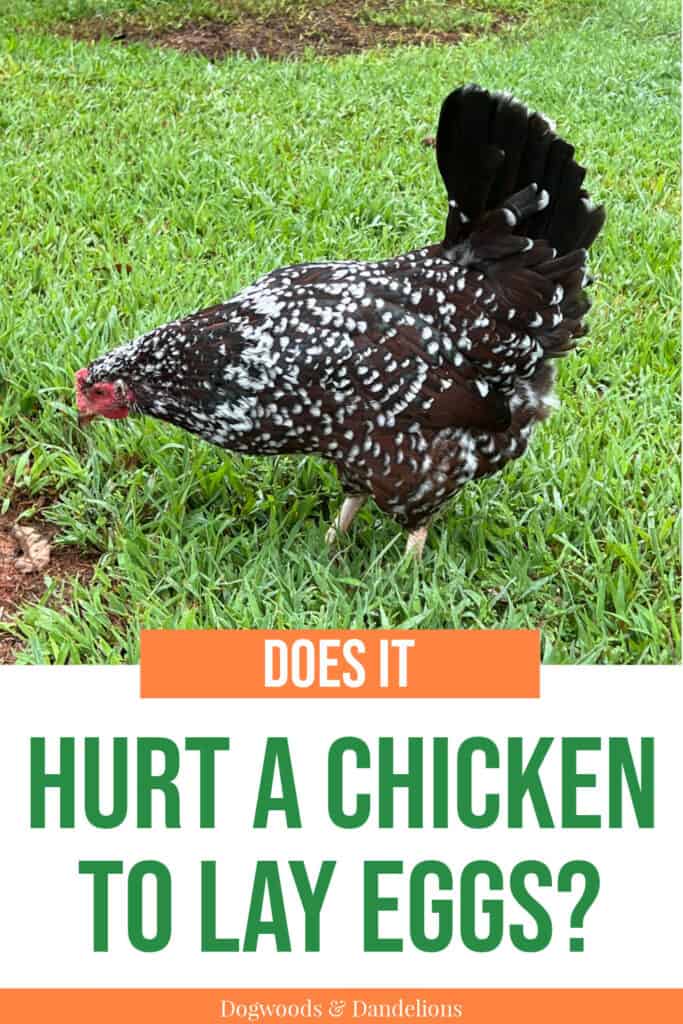Does It Hurt Chickens to Lay Eggs?
Inside: Does the process of egg-laying hurt chickens? And if so, what are the common reasons laying an egg causes a painful experience for a hen?
People often wonder does it hurt chickens to lay eggs. And while there is a bit of controversy around this question, the answer isn’t always as simple as yes or no.
Most of the time for chickens that have been laying for a while, it does not hurt a chicken when she lays her egg. Her body is used to the process and her vent stretches easily to allow the egg to pass.
Most of the time spent in the nest box is fluffing the bedding to make a safe place for the egg to land. A chicken’s egg is shaped to make the process of moving along her oviduct easier and a hen has muscles inside that move the egg along.
I’ve seen many of my hens lay eggs and even caught a few in my hand as they were laid and none of my hens have ever seemed to be in pain before or after they have passed the egg.
Remember, laying eggs is a natural process for egg-laying chickens. Most hens lay an egg every 24-26 hours during peak laying season. Most chickens shouldn’t experience any pain during normal circumstances.
However, there are times when it does hurt a chicken to lay an egg. Let’s explore those.
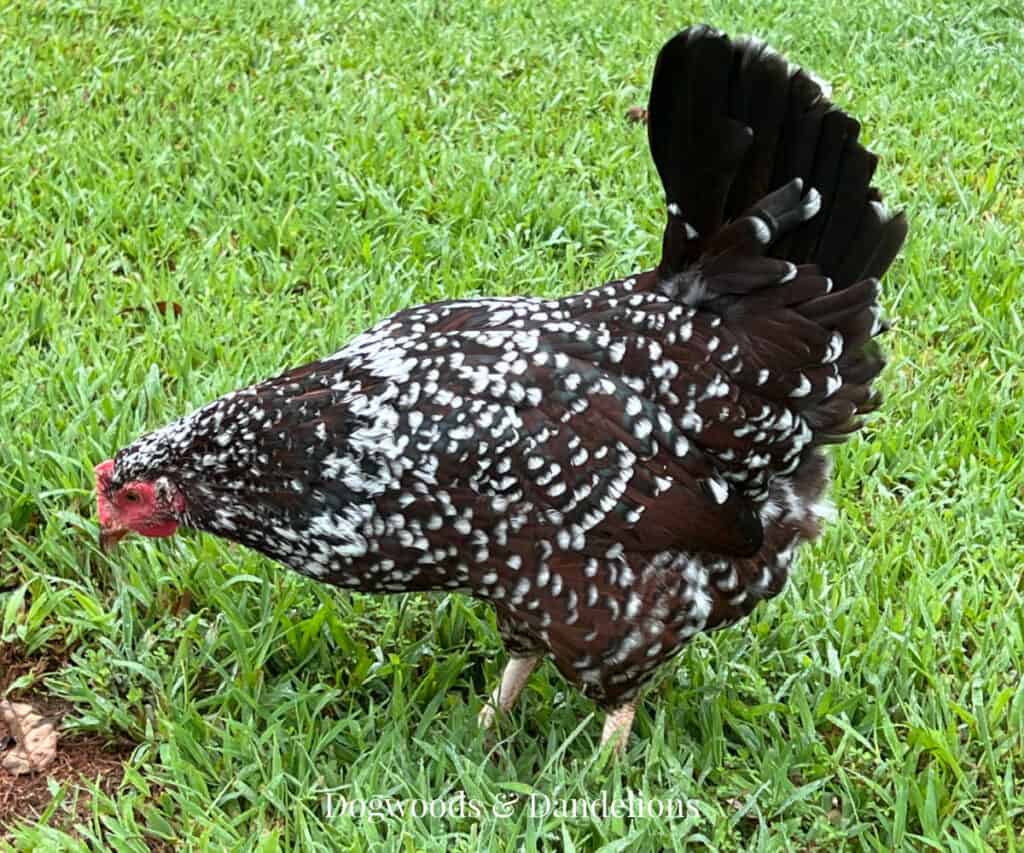
Affiliate Disclosure: Please note that some of the links in this article may be affiliate links and I may receive a small commission if you purchase something through a link. It will not change your cost. As an Amazon Associate, I earn from qualifying purchases. For more information, see my disclosures page.)
Conditions That Might Cause Pain When a Chicken Lays an Egg
Chickens don’t like to show weakness around other chickens. When they do, they usually get picked on. (The pecking order is real!) They will hide signs of pain and illness for a long time if at all possible.
But occasionally, you may notice a chicken showing signs of distress when laying an egg. This is usually an indication that a hen is in pain.
Young Hens That Just Started Laying
If you have a new layer hen, it can sometimes hurt the first time they lay an egg. A young hen’s vent has not been stretched by laying eggs, so even passing a small egg may be painful.
However, the good news is that as the hen lays more and more eggs, her body adapts to the egg-laying process. While she will start gradually laying larger eggs, the hen’s body will usually adjust.
A Hen Laying Double-Yolkers or Oversized Eggs
Sometimes a chicken will lay an egg that is larger than the normal size. Young chickens especially will often lay a large egg that contains two yolks, called a double-yolker.
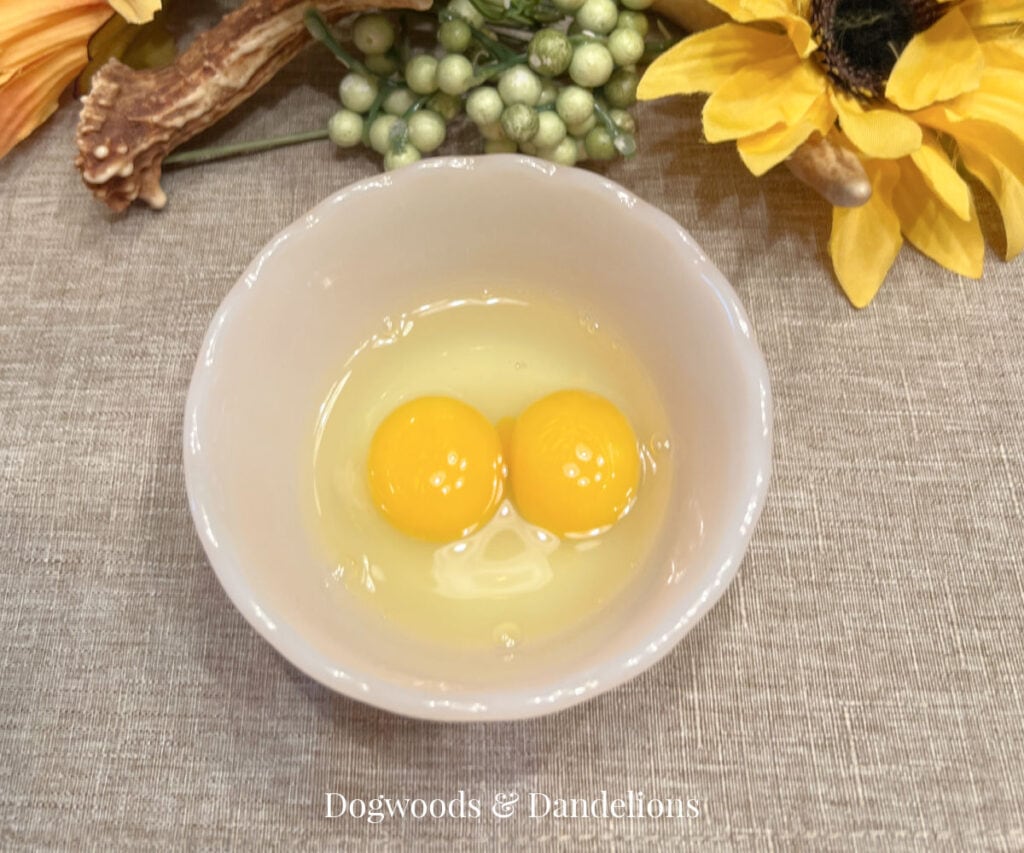
Because it contains two yolks, it is naturally quite a bit larger than normal eggs. These jumbo eggs can sometimes cause a bit of pain for the hen as she passes the egg. You may even see a bit of blood on the shell of the egg.
However, the pain should be temporary and once the egg is out, the hen should be just fine.
An Egg Bound Hen
Sometimes a chicken will get egg bound. What does egg-bound mean? It means a chicken gets an egg stuck in its oviduct (birth canal) and is having a hard time pushing it out.
If a hen is egg-bound, she is definitely in pain. She will probably be scrunched down trying to get the egg to pass. The hen may be dragging her wings or walking like a penguin. She will likely be straining trying to push the egg out.
And egg binding in a hen is serious business. If she can’t get the egg to pass, she will eventually die. The egg stuck in her oviduct stops all other bodily functions from happening too.
She won’t be able to poop or pass other eggs so it must be removed. And unfortunately, you only have a 24-48 hour window to help her before she dies.
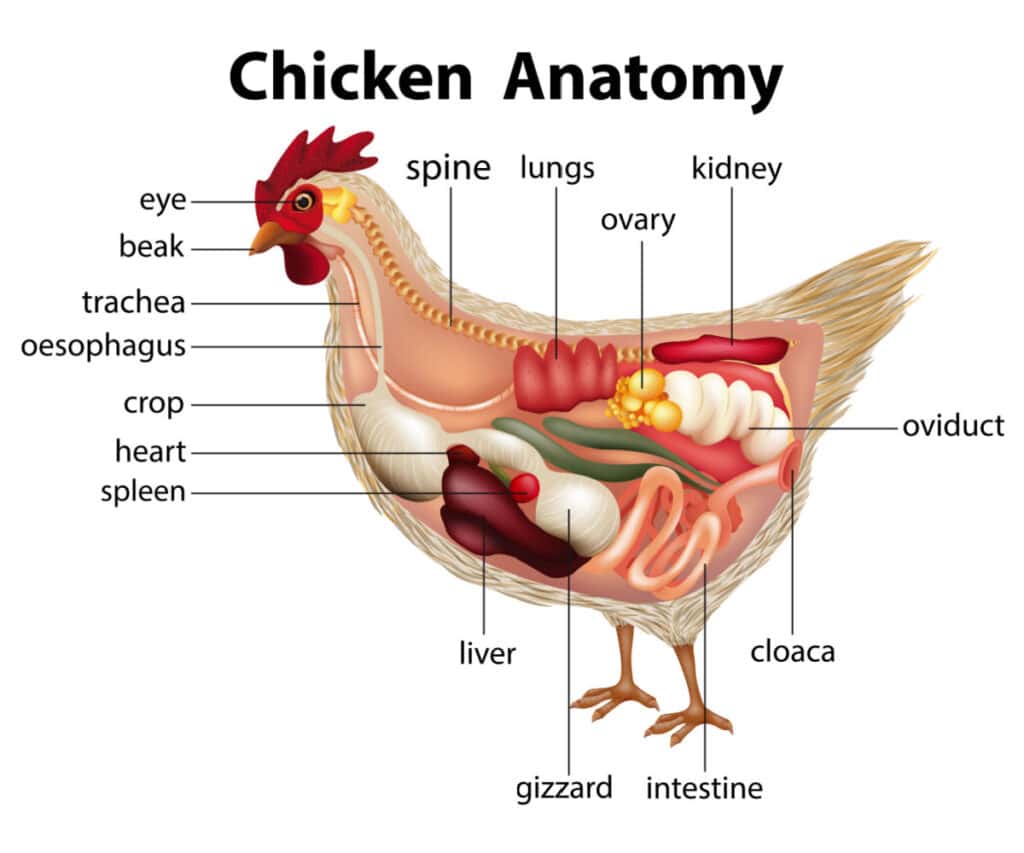
If you have an egg-bound chicken, first separate her from the rest of the flock. Encourage her to drink some water. Then try soaking the lower half of her body in a warm bath with Epsom salts for 15-20 minutes. This is the best way to try to get the egg out.
You can also use coconut oil or vegetable oil to lubricate the cloaca and vent and gently massage her abdomen to help her pass the egg. (See the picture of the chicken’s reproductive system above.)
However, you shouldn’t try to break the egg while it is still inside the hen, except as a last resort. This can lead to even more problems. (See below.)
If you want more information on how to help a chicken that is egg-bound, Grubbly Farms has an excellent article on helping egg-bound chickens.
A quick note: Just because a hen isn’t laying eggs doesn’t mean she has a bound egg. See this list of why your chickens may not be laying eggs for other reasons why a hen might not be producing the number of eggs you think she should.
Thin-Shelled Eggs
Chickens that lay eggs with thin shells can sometimes have an egg that gets broken while inside the chicken’s body. Your hen may be in pain if she has a broken egg inside her.
An egg that has broken inside the oviduct can lacerate the hen’s insides and lead to a serious infection called peritonitis. Sometimes the hen may pass the egg and shell on her own, but if not, you will need to try the warm bath mentioned above.
The best thing for both egg-binding and a broken egg is prevention. Many times, these problems are caused by a calcium deficiency.
Always provide your flock with a properly formulated layer feed. Also, offer your hens plenty of calcium in the form of oyster shells.
The good news is that most of these problems rarely happen in healthy chickens. Most of the time your egg-laying hens will live happy, healthy lives laying lots of fresh eggs for your family.
However, there are a few things you can do to make the egg laying process a bit more comfortable for your backyard flock.
How Can You Make the Egg-Laying Process More Comfortable for Your Hens
The number one thing you can do to make egg laying more comfortable for your hens is to provide a safe place for them to lay their eggs. Placing nest boxes inside the coop gives them a comfortable, stress-free environment in which to lay their eggs.
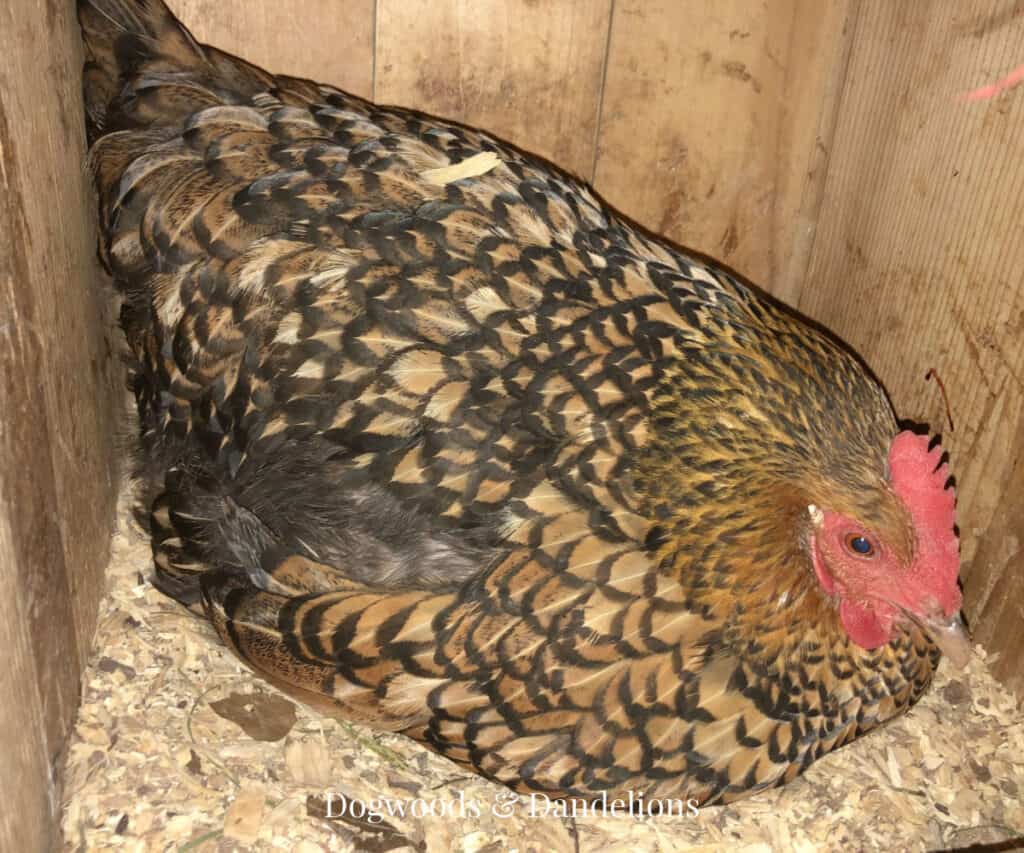
Providing nesting box curtains on the nest boxes so they can lay their eggs in the dark will also help. A chicken is very vulnerable to an attack on her backside while she is laying an egg so the curtains provide a feeling of safety and security and other flock members can’t see her vent while she is pushing out the egg.
The Egg Song – Are They Clucking Because Laying Eggs Was Painful?
You will often hear your chickens clucking after laying an egg. This is not a sign that it hurt the chicken to lay the egg.
Actually, the chicken is singing “the egg song” because she is happy and excited that she laid her egg and wants everyone else to know it.
An interesting fact about the egg-laying song: Roosters will often join in singing with the hen. Our rooster, Red, loves to sing along with his ladies. I think he is proud of them for laying their eggs too!
The average hen lays between 100 and 300+ eggs in a single year, though this will vary greatly by age and breed. Young chickens lay more eggs and as they get older, egg production slows.
And some chicken breeds naturally lay a larger number of eggs than others. So while some worry that it hurts chickens to lay eggs, it rarely does. It is a natural part of a laying hen’s life.
Related Posts
- The Friendliest Breeds of Chickens to add to your backyard flock.
- Do You Need a Rooster in Your Flock?
- Chicken Terms Explained – Don’t know all the chicken lingo? This post explains it all.

Meet Julie
I’m a farm girl born and bred in North Carolina. I’ve been growing a vegetable garden for over 20 years (and helping my Mom grow hers even longer). I’ve been raising chickens in my bathtub and backyard for 12+ years. I believe that homegrown food can be made simple. Let’s get started.
